Extra Challenge Word Problems Worksheets for Ages 4-8
22 filtered results
-
From - To
Discover our Extra Challenge Word Problems Worksheets designed for children aged 4-8! These engaging worksheets provide young learners with the opportunity to tackle more complex math concepts while developing problem-solving skills. Perfect for advanced students or those looking to reinforce their learning, our worksheets feature a variety of fun and thought-provoking scenarios that encourage critical thinking. Each problem is crafted to promote mathematical reasoning, helping children understand real-world applications of their math skills. Ideal for classroom use or supplemental practice at home, these worksheets will ignite curiosity and challenge your child to reach new academic heights. Dive into math fun today!
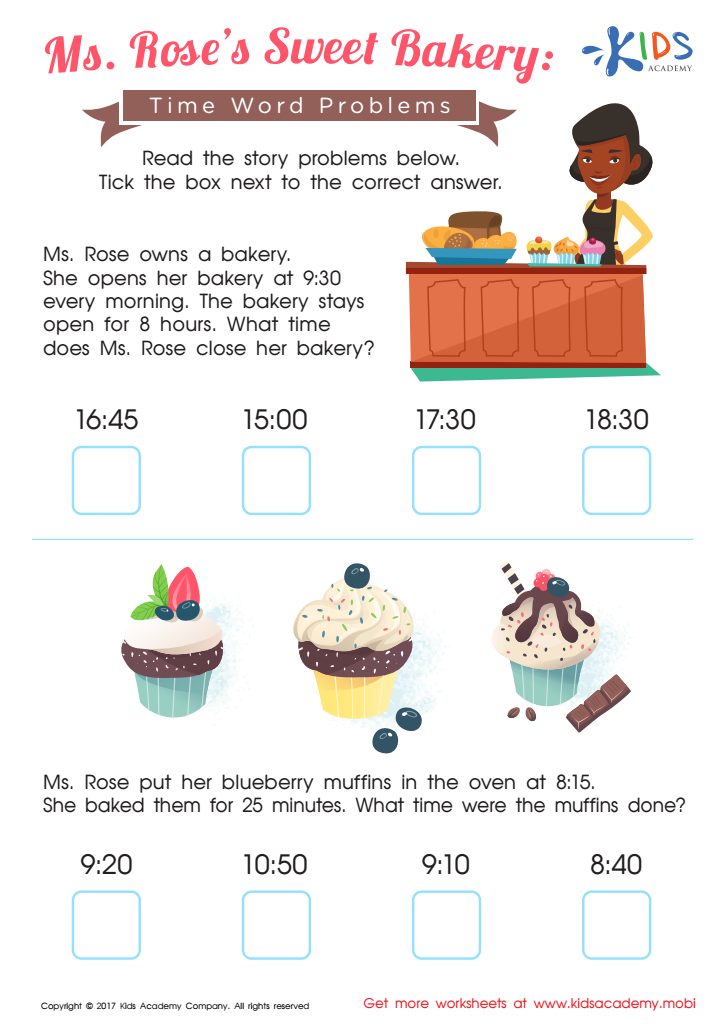

Ms. Roseв's Sweet Bakery Time Worksheet
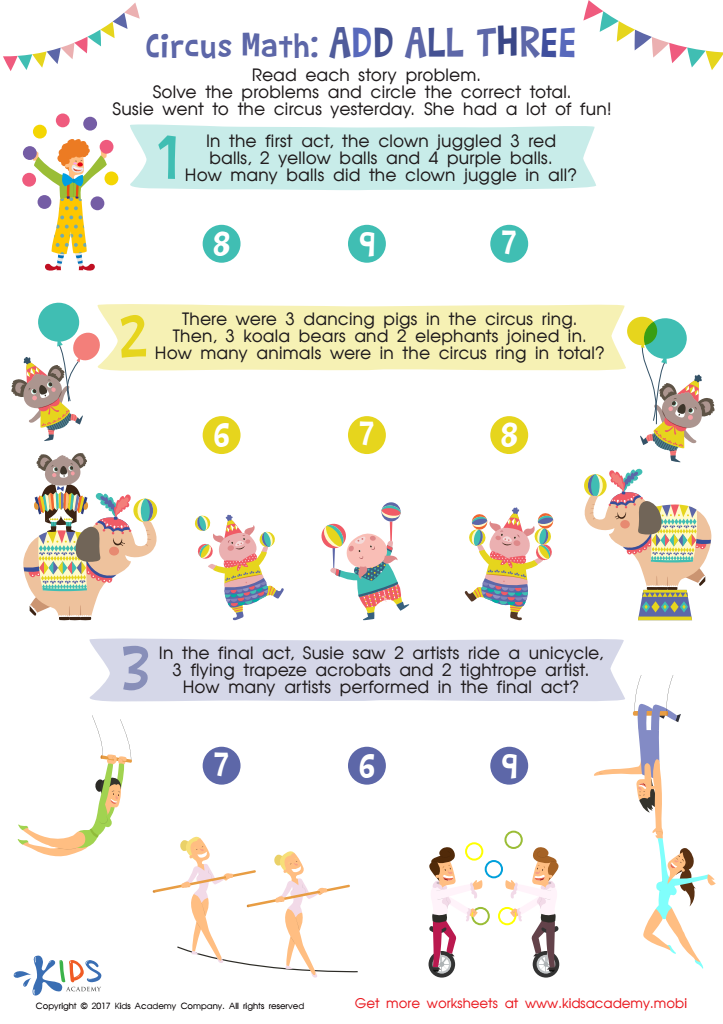

Circus Math Printable
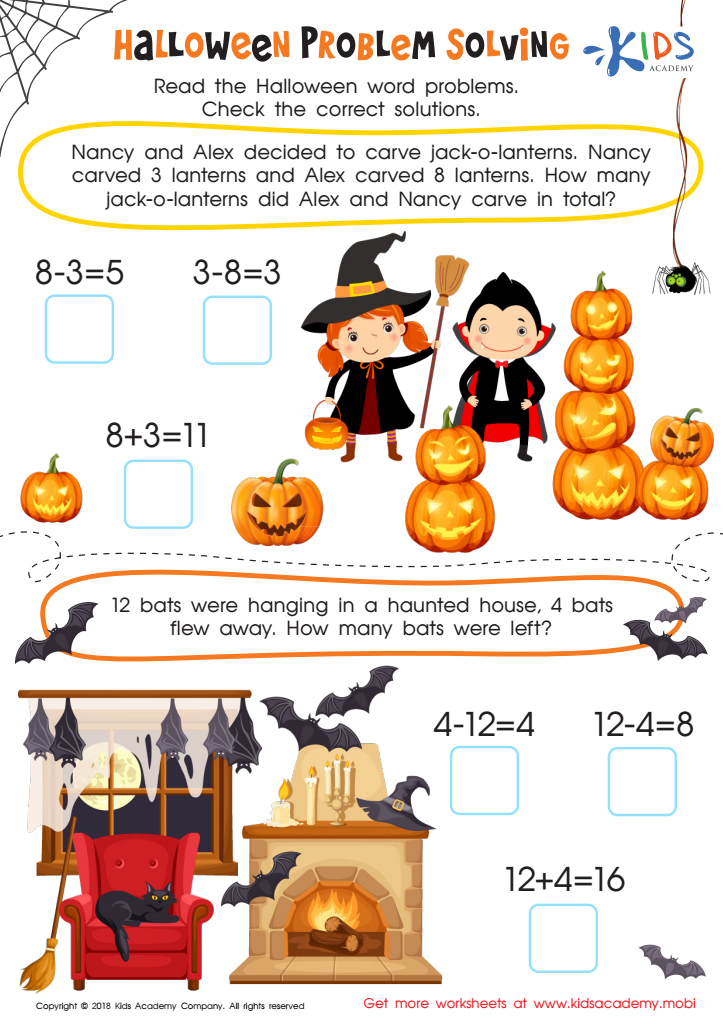

Halloween Problem Solving Worksheet
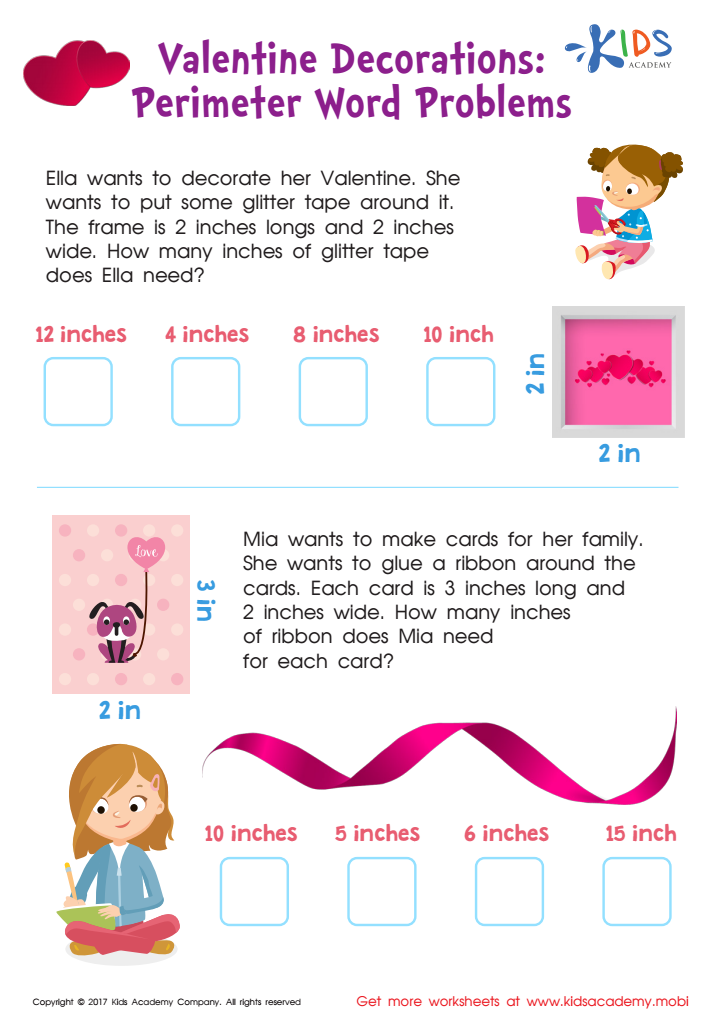

Perimeter Word Problems Worksheet
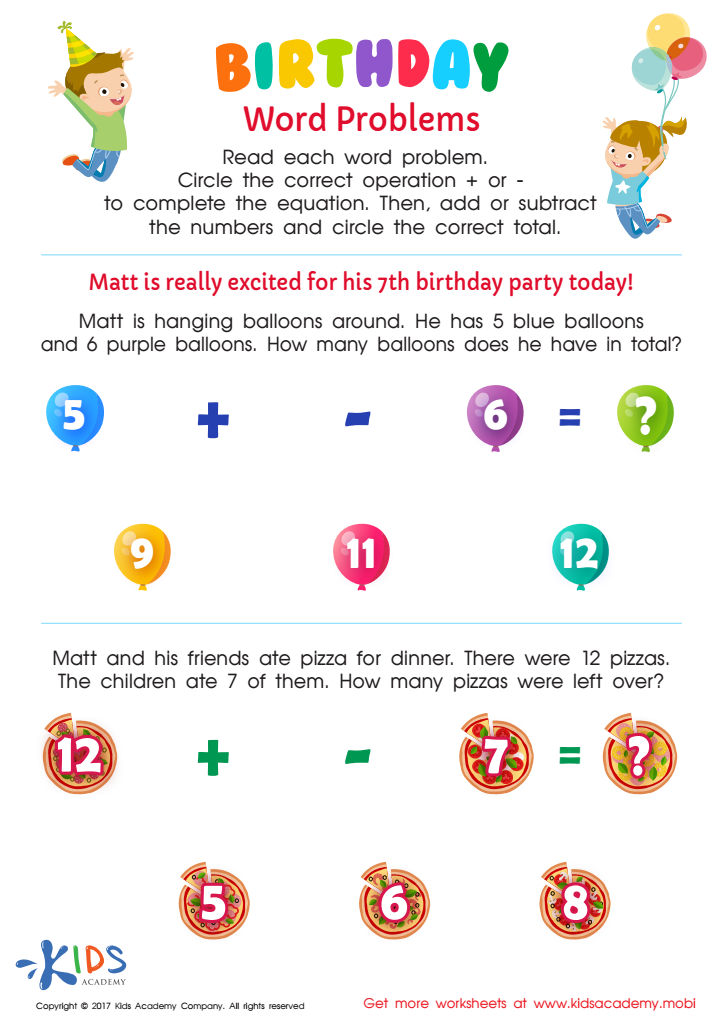

Birthday Word Problems Substraction Worksheet
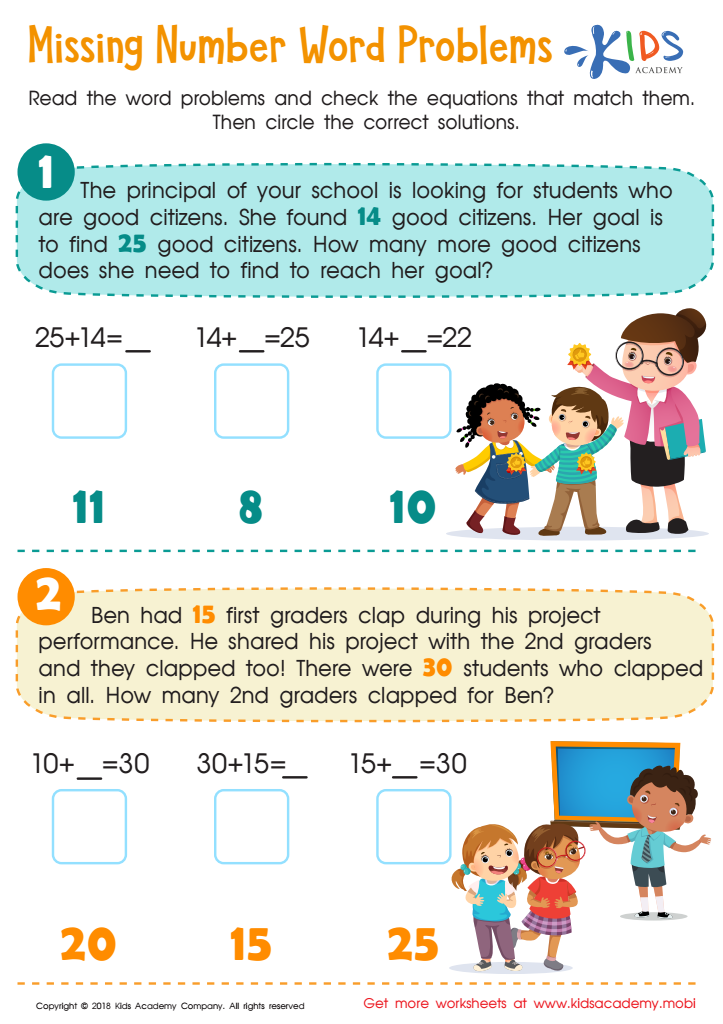

Missing Number Word Problems Worksheet
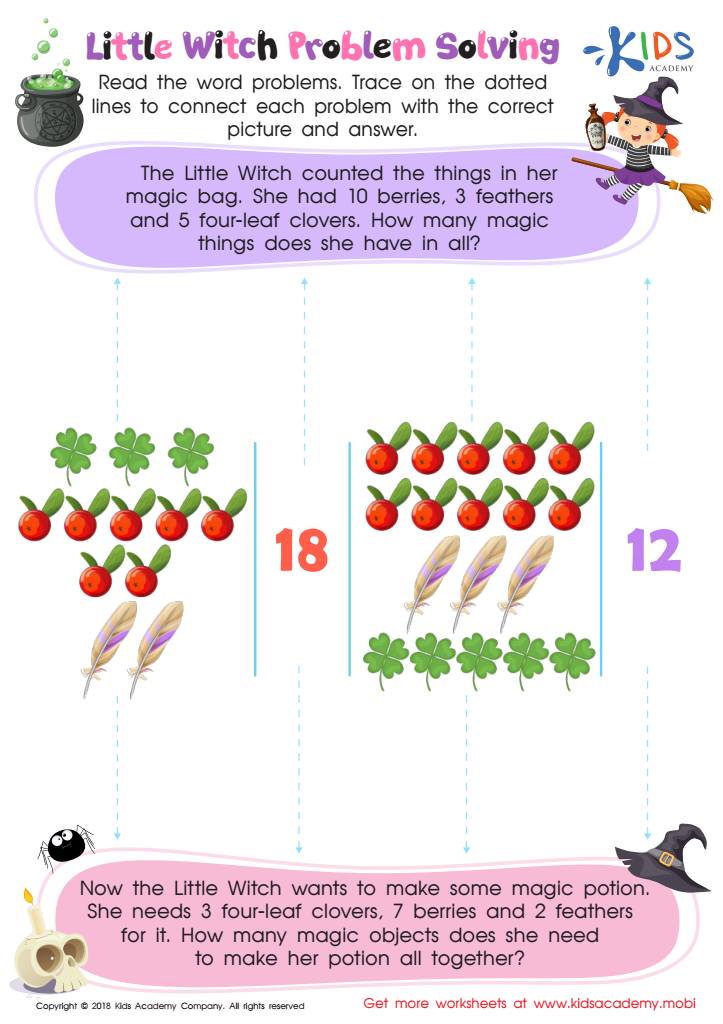

Little Witch Problem Solving Worksheet
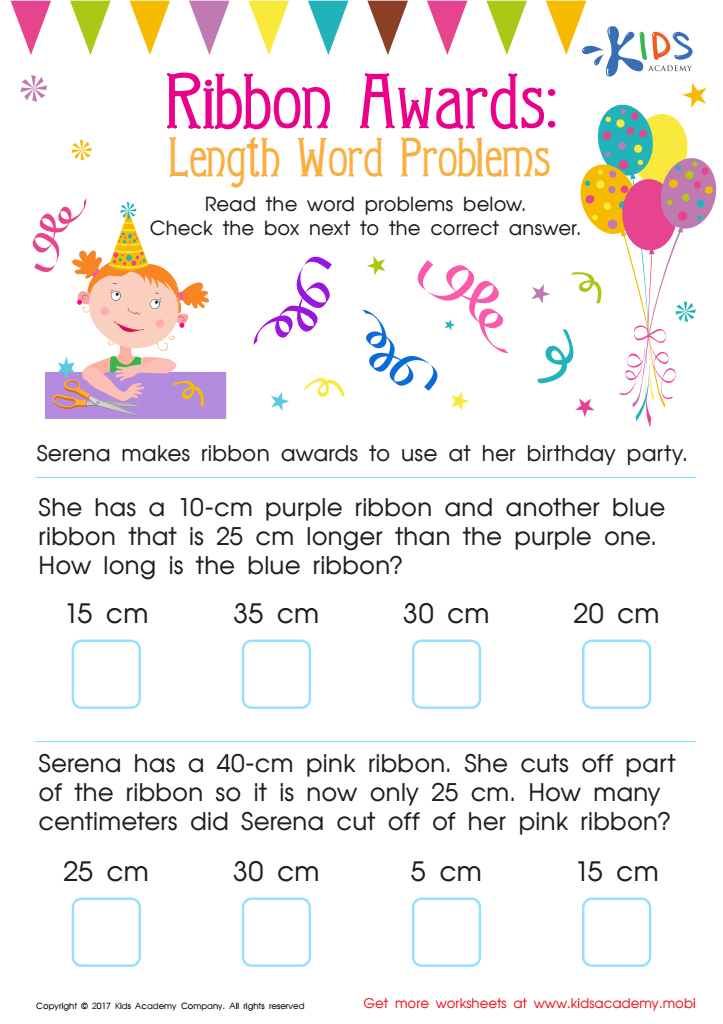

Length Word Problems Worksheet
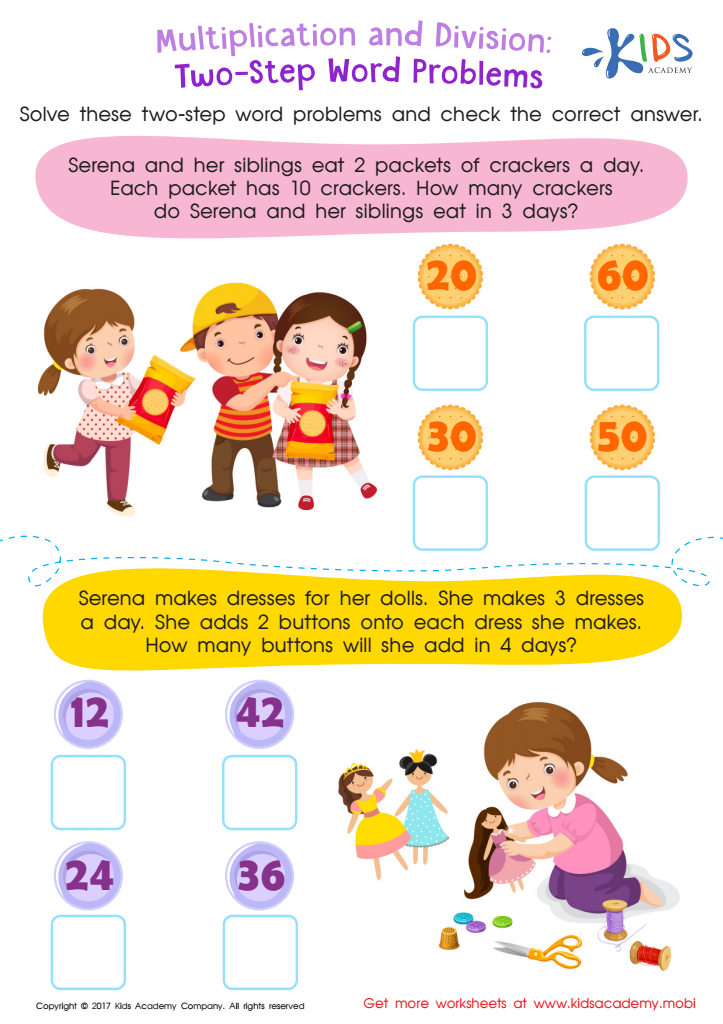

Two Step Word Problems Worksheet
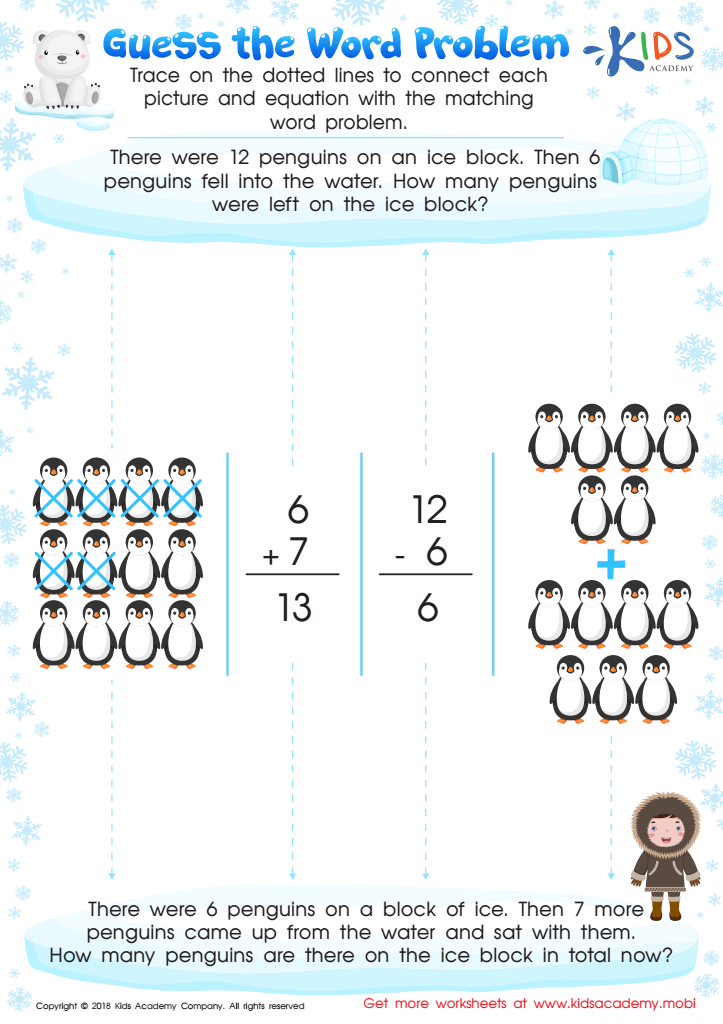

Guess the Word Problem Worksheet
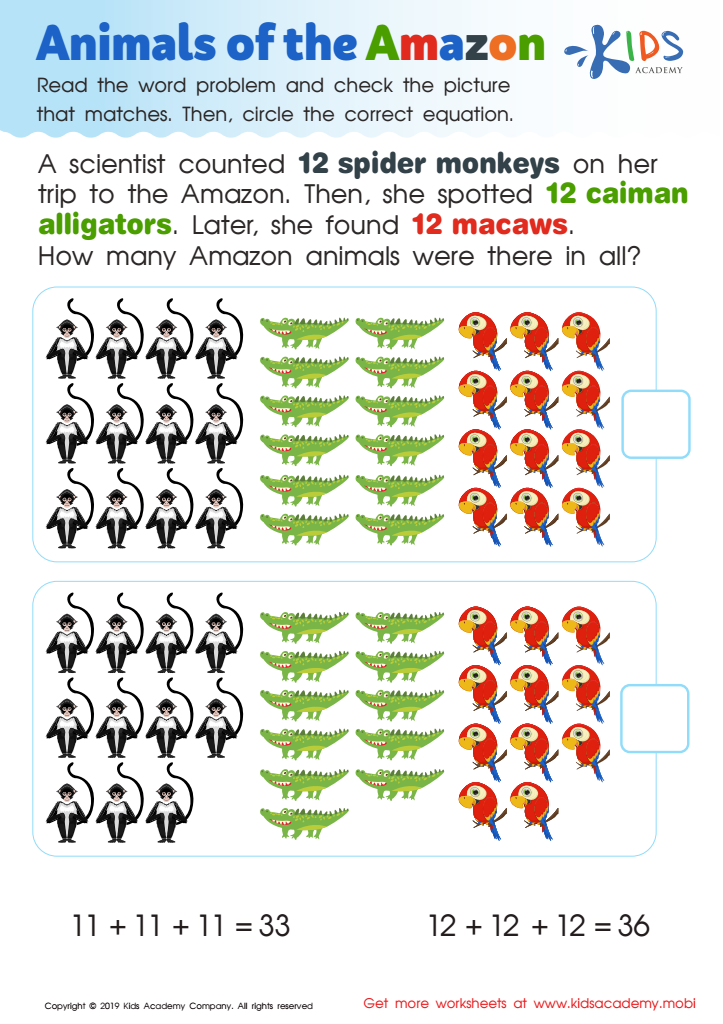

Animals of Amazon Worksheet
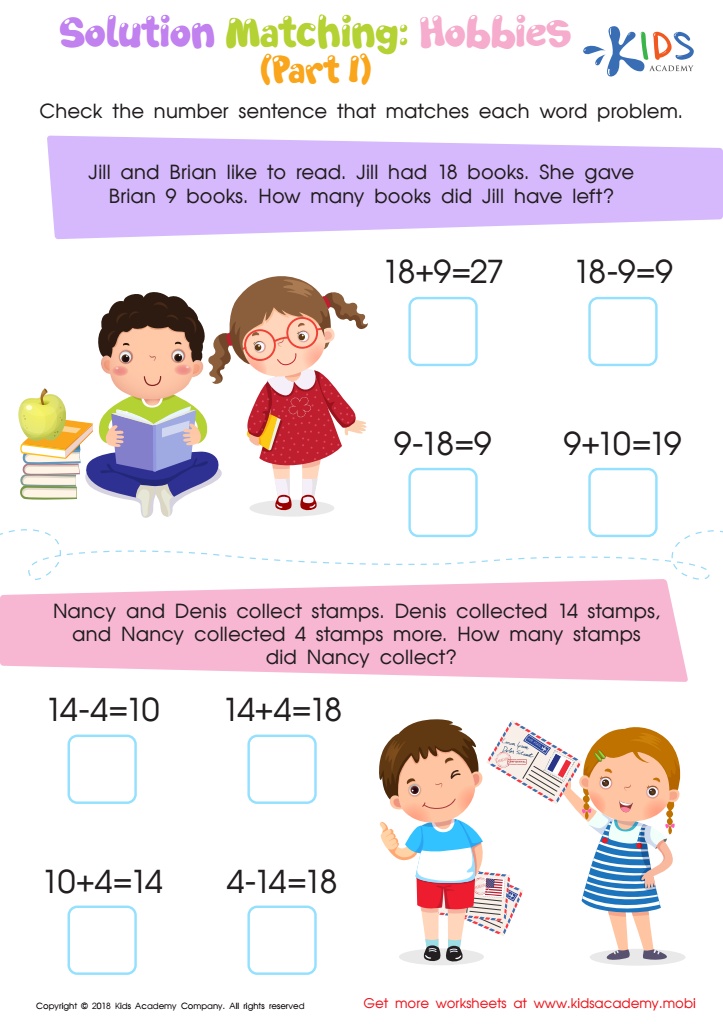

Solution Matching: Hobbies. Part 1 Worksheet
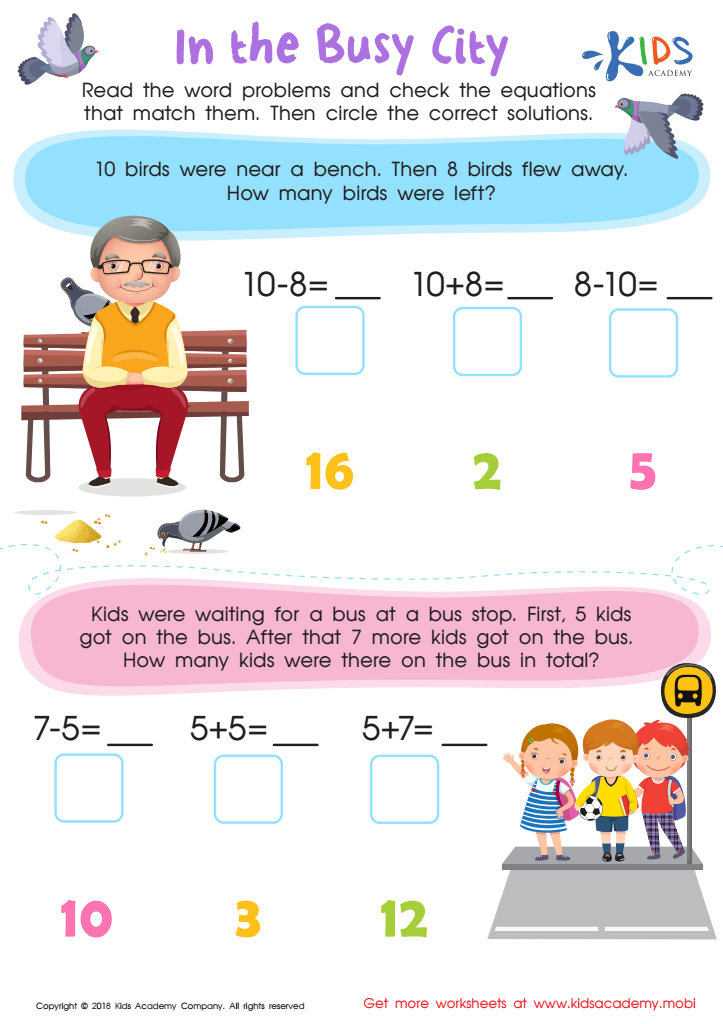

In the Busy City Word Problems Worksheet
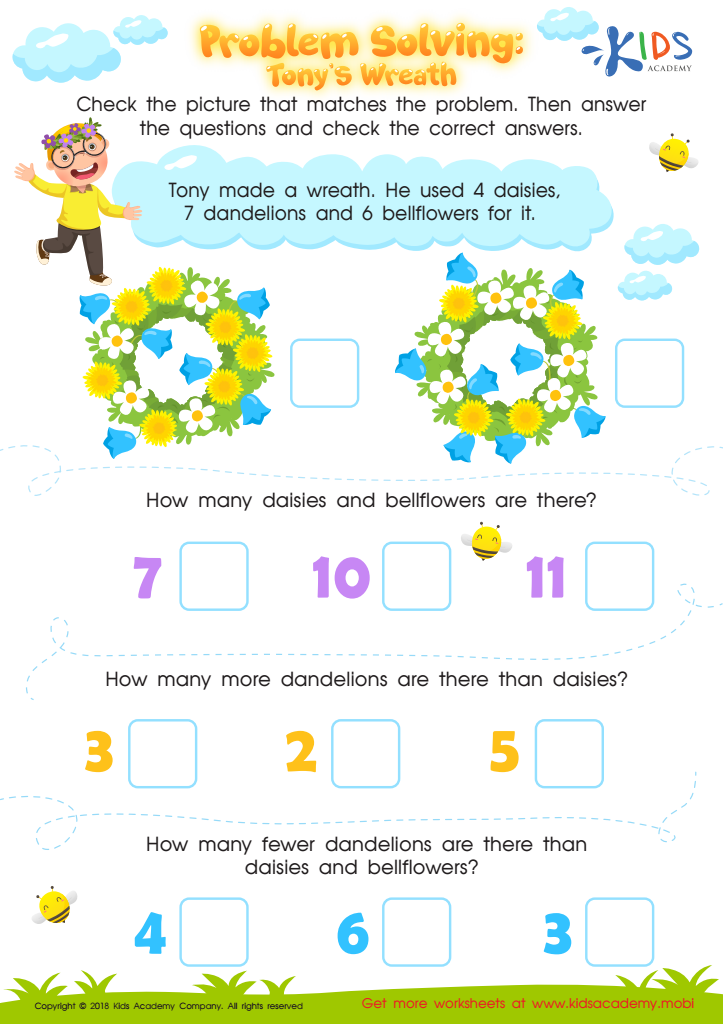

Problem Solving: Tony's Wreath Worksheet
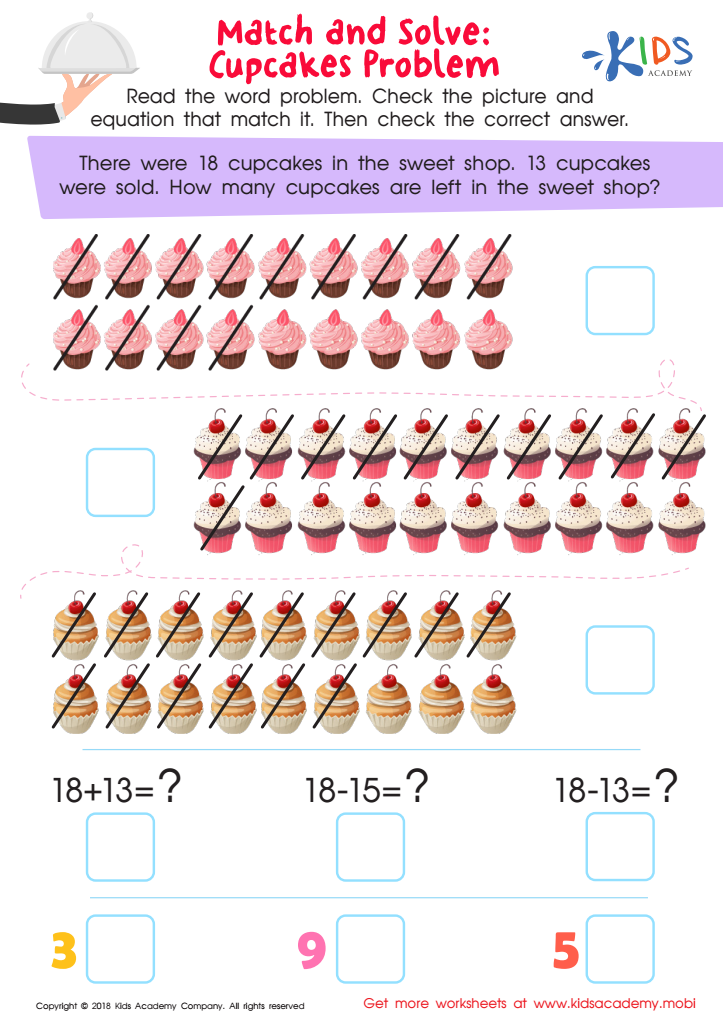

Match and Solve: Cupcakes Problem Worksheet
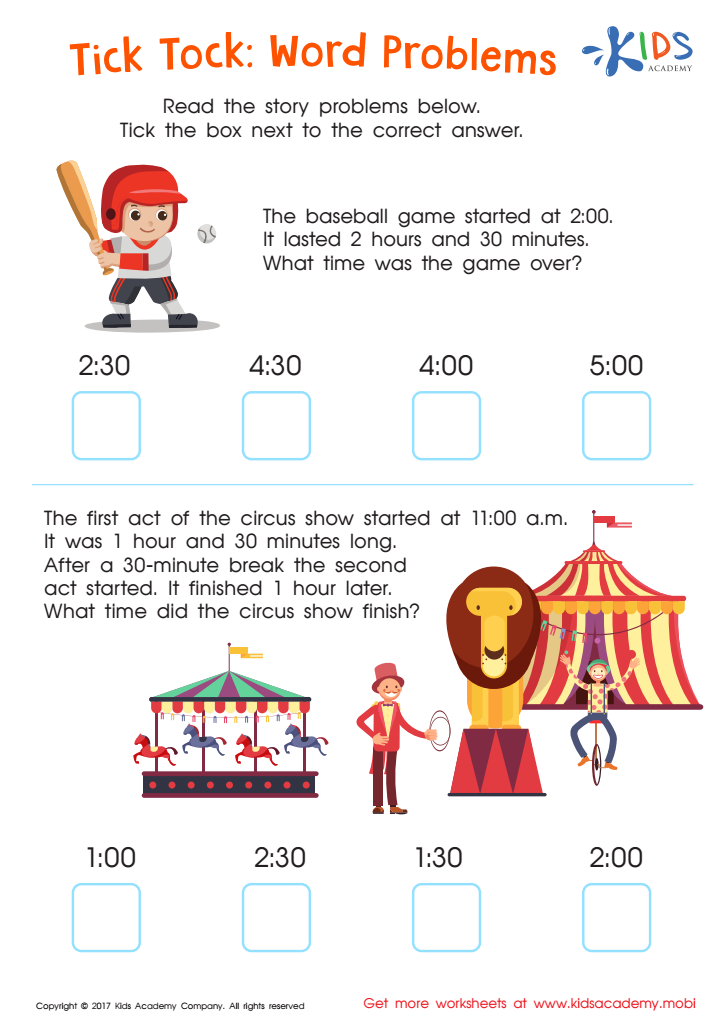

Tick Tock Word Problems Time Worksheet
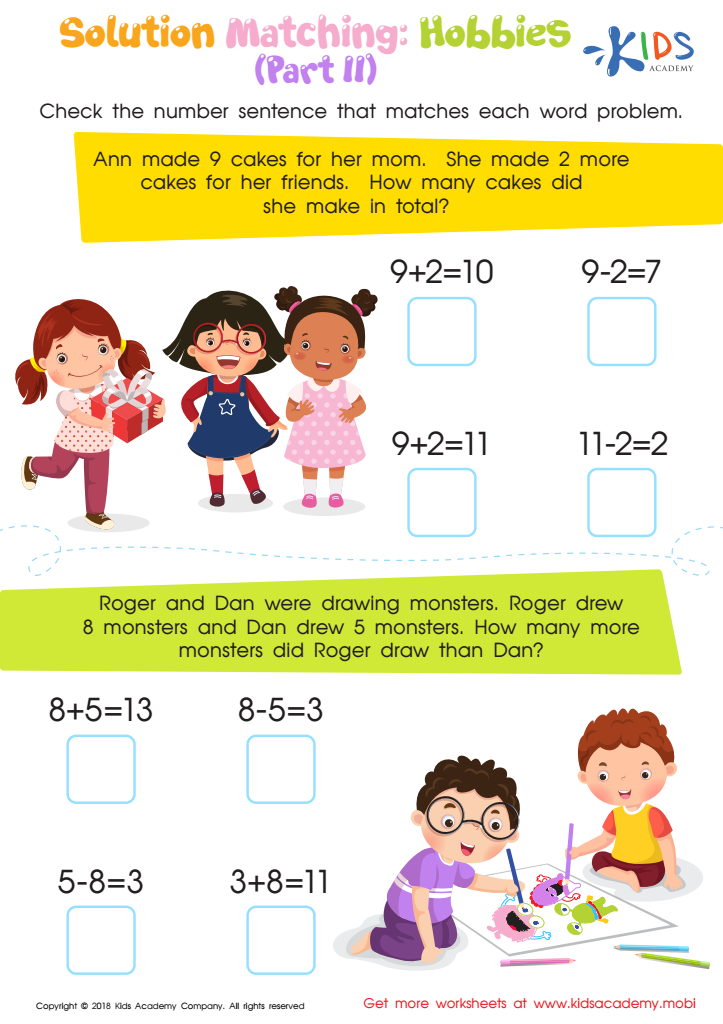

Solution Matching: Hobbies. Part 2 Worksheet
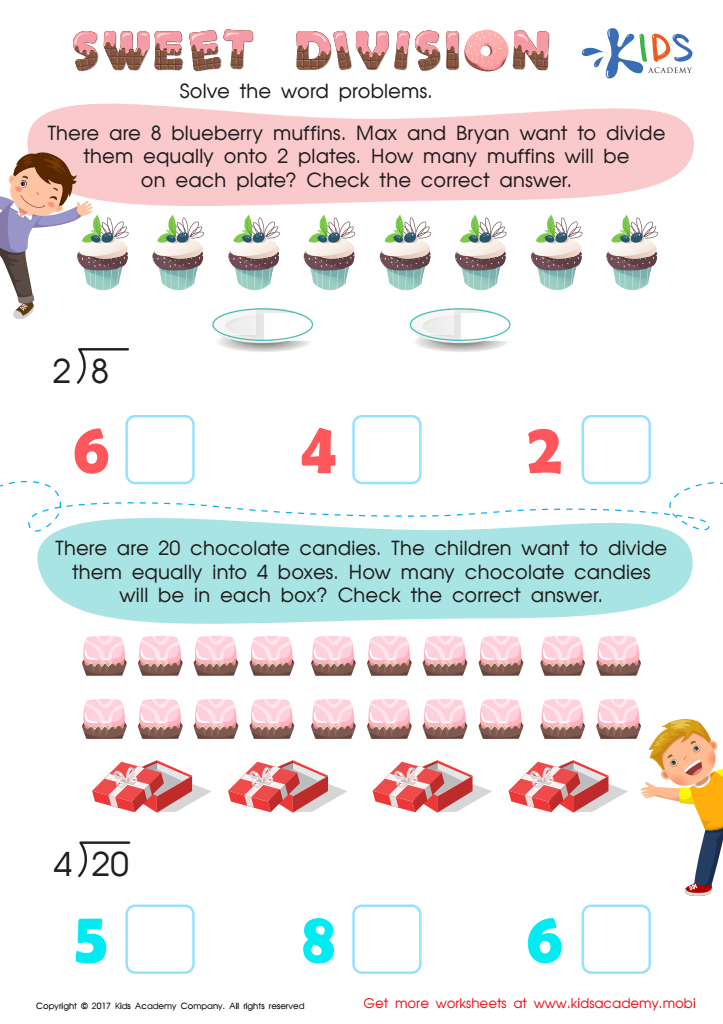

Division Word Problems Worksheet
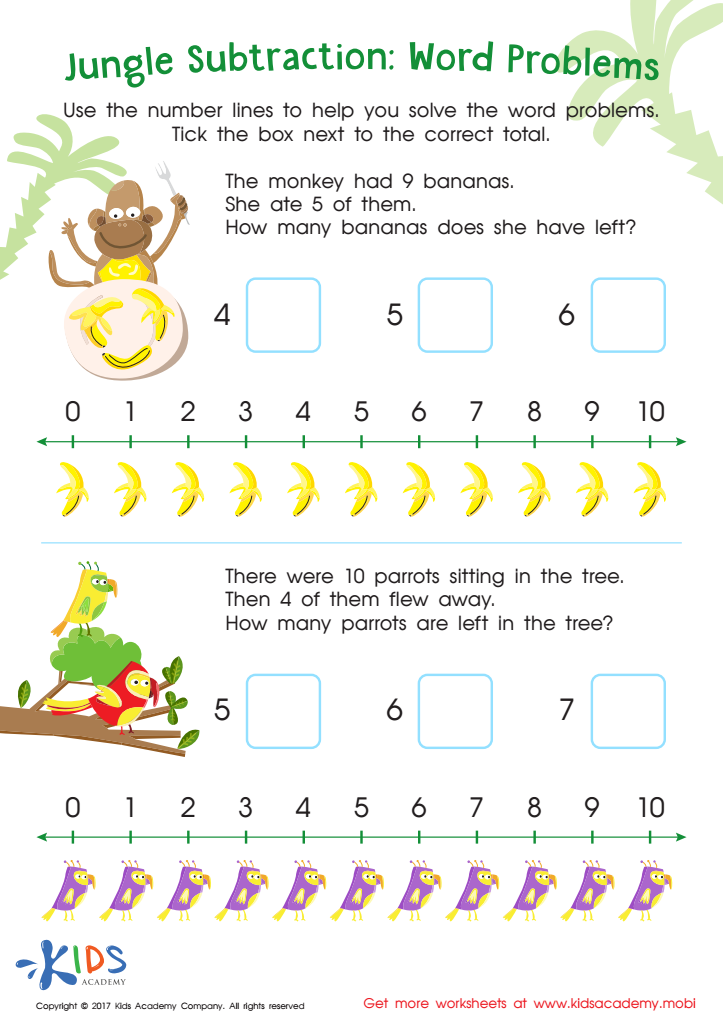

Jungle Subtraction Word Problems Substraction Worksheet
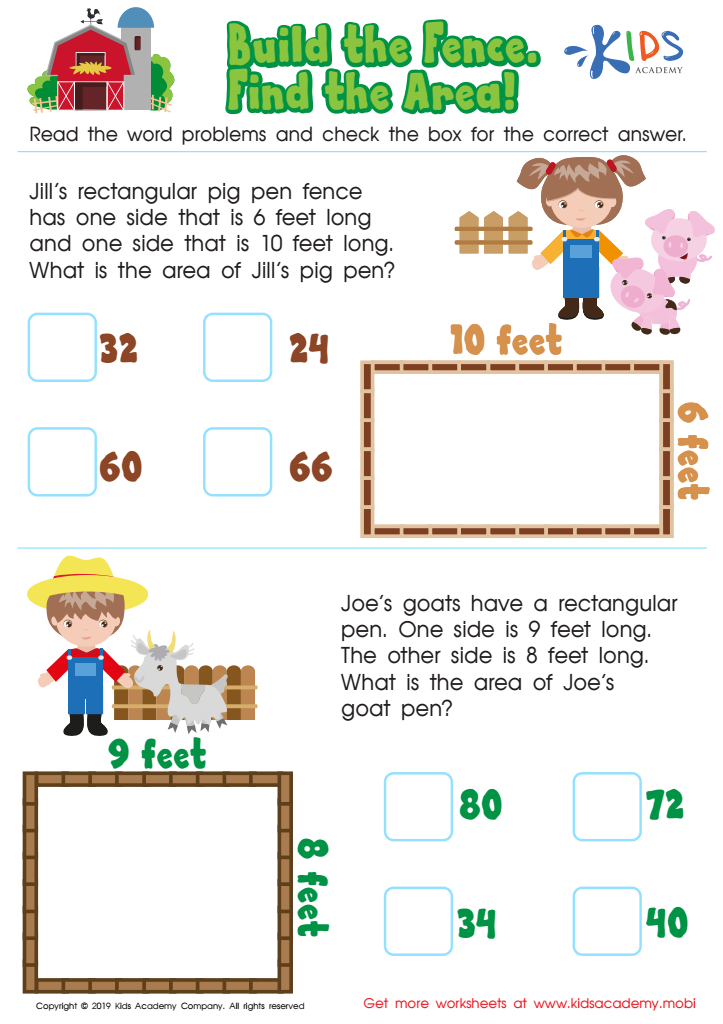

Build the Fence, Find the Area Worksheet
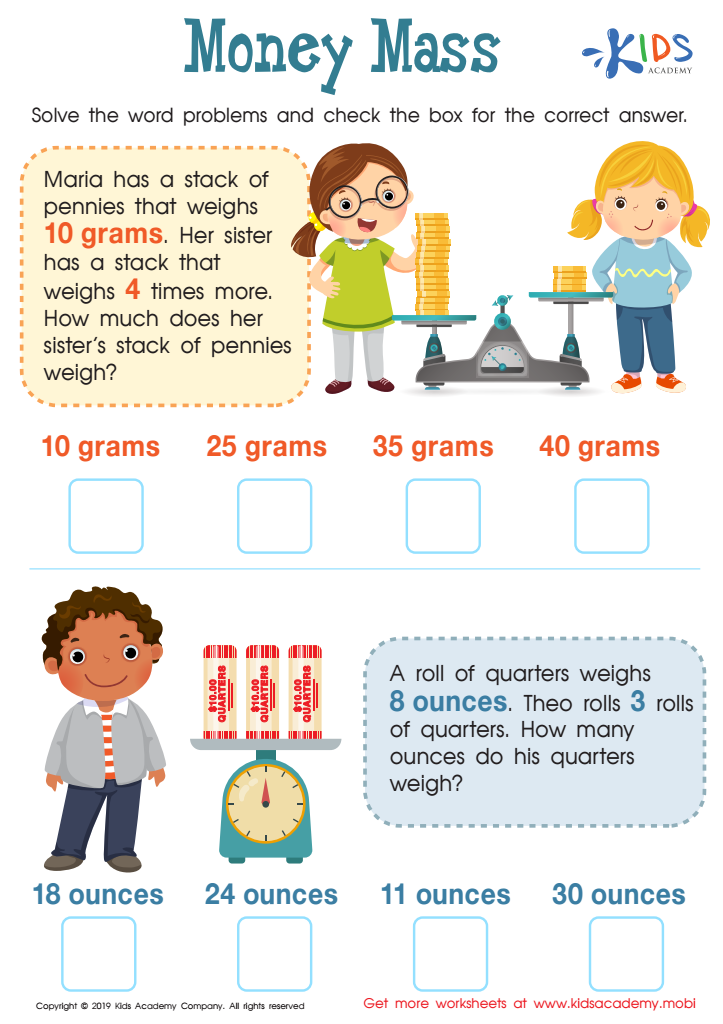

Money Mass Worksheet
Extra Challenge Word Problems for ages 4-8 play a crucial role in early childhood education, fostering not only mathematical skills but also critical thinking, comprehension, and problem-solving abilities. These problems encourage children to apply their understanding of basic math concepts in real-world contexts, enhancing engagement and retention of knowledge.
When engaging with word problems, children learn to decode language, assess information, and formulate solutions, nurturing both their literacy and numeracy simultaneously. These challenges promote persistence as kids encounter and work through difficulties, cultivating a growth mindset. They learn that making mistakes is part of the learning journey, which builds resilience.
For parents and teachers, incorporating Extra Challenge Word Problems can help identify children’s strengths and weaknesses in problem-solving. This targeted approach allows for tailored instruction to meet individual needs. Moreover, discussing and solving word problems together encourages collaboration and communication skills, strengthening the bond between children and adults.
Ultimately, these problems support a well-rounded education by developing cognitive skills essential for future academic success, making it imperative for parents and teachers to prioritize them in their educational activities. Fostering these skills early on lays a foundation for lifelong learning and curiosity.
 Assign to My Students
Assign to My Students


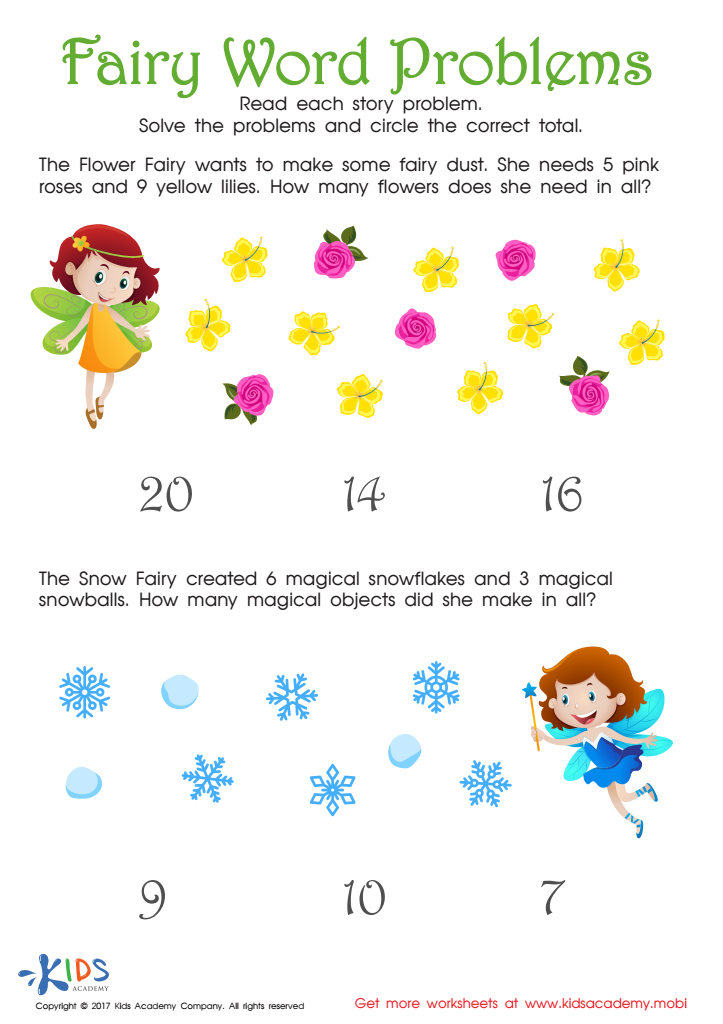








.jpg)











